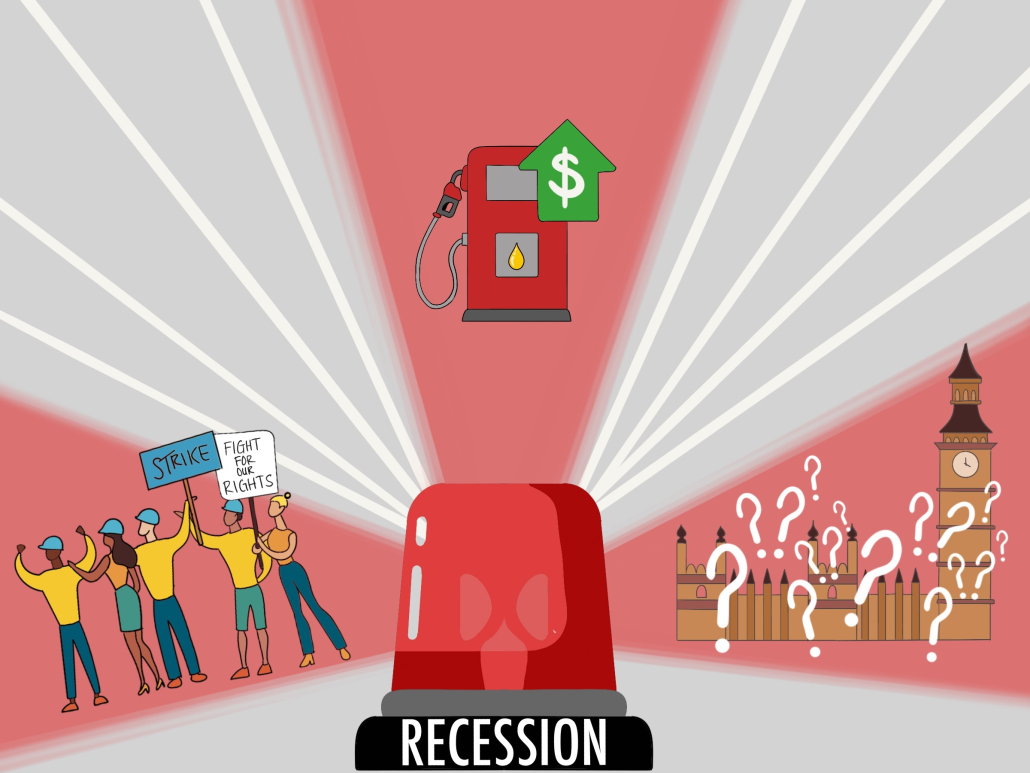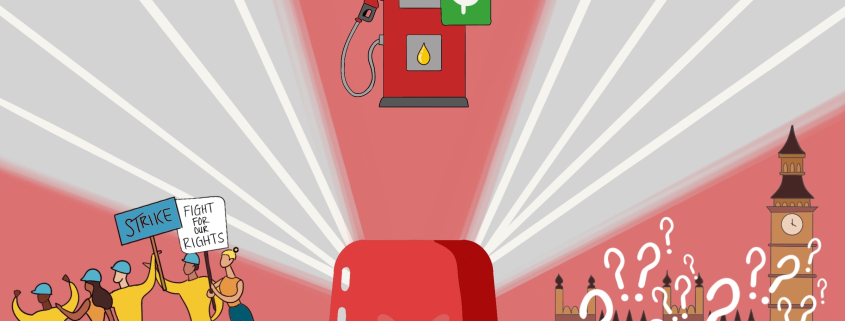Bursting Your Bubble: Chaos, apathy and joy after the Queen’s death

Content warning: This column includes mentions of graphic violence.
Queen Elizabeth II died Sept. 8 at the age of 96. But you already knew that: You’ve read the countless articles and obituaries, seen the front pages of British newspapers or scrolled through Tweets convinced that she was reincarnated as Trisha Paytas’ newborn child. Maybe (God forbid) you found out about her passing because The Shade Room posted about it on Instagram or Twitter.
Whatever the case, the news was — and continues to be — inescapable. It seems the media is adamant on emphasizing that thousands, if not millions, are mourning the Queen’s death. Western leaders and their allies have been doing the same, calling her everything from a “source of comfort and pride” to a “kind-hearted queen,” who “will forever remain in the history of mankind.”
These statements are true, but they are partial truths. I’m going to take a wild guess and assume that you, the average American reader, don’t care. You might even be asking: “It’s the 21st century; who cares about the British monarchy anymore?”
Great question. Let’s break it down. First, here’s who cares: Western media and leaders, the Royal Family and — whether they like it or not — Britons. Here’s who doesn’t: pretty much everyone else.
More importantly, here’s who couldn’t be happier about the news: (most) former British colonies.
Britain
After his mother died, the newly crowned King Charles III declared a period of Royal Mourning until seven days after the Queen’s funeral — and that Sept. 19, the date of the funeral, would be a bank holiday. Every corner of Britain is facing closure or postponement: schools, post offices, supermarkets, restaurants, social services and even football games.
Did I mention there’s a cost-of-living crisis? Inflation is at its highest in decades, and U.K. residents are struggling to pay their energy bills with declining wages. Britons have been waiting and waiting, even going on strike, for their Parliament to do something, but while the Queen was alive, the government was too busy electing its new prime minister (who is now proposing such helpful measures as rescinding anti-obesity policies). Now, it is too busy waiting until after Monday’s funeral.
To rub salt in the wound, food banks — on which millions now depend — are closing for the funeral. Hospitals are canceling or rescheduling appointments, including surgeries. Police are also arresting people for “disturbing the peace” by protesting (or carrying eggs) near mourning sites. As the Queen’s death leaves Britons suffering, it is difficult to imagine that the dwindling support for the monarchy, especially among younger generations, will recover anytime soon.
Former British colonies
When the Queen took the throne in 1952, her country was carrying out violent counterinsurgency campaigns against her subjects. In Malaysia (then Malaya), the British army declared a Malayan Emergency, then forcibly relocated upwards of 400,000 people, massacred dozens of villagers and allowed headhunters to decapitate and scalp corpses to keep as trophies. In Kenya, after decades of forcing the Kikuyu out of their own lands and into poverty, Britain quelled the subsequent Mau Mau rebellion, killing thousands in combat and imprisoning (“re-educating”) even more in concentration camps.
Only in 2013 did Britain apologize for its torture of Kenyans. For its other atrocities — its bloody partition of India, its abuse of Iraqi detainees, its theft of the Kohinoor diamond, its murder of South African prisoners and more! Queen Elizabeth and her regime have remained silent. One can imagine the joy of a people learning of their complacent oppressor’s death.
I mentioned earlier a notable exception: Hong Kong. Its years under British rule were often turbulent, fraught with anti-colonial protests and briefly interrupted by Japanese occupation. Nonetheless, fueled by colonial nostalgia and defiance against China, thousands are waiting in line each day to pay their respects at the British consulate.
Honorable mentions
For critics of the monarchy, and nations wanting to leave the Commonwealth, now is the optimal time: King Charles III is far less popular than his mother, even after a recent surge in approval ratings.
But anti-monarchist groups are staying low for now. The pressure group Republic offered muted condolences, saying it “must respect the family’s personal loss.” Besides a giant banner on its website reading, “#NotMyKing: An affront to democracy,” it has yet to announce any large-scale action. Protests and hecklings against the Royal Family since the Queen’s death are mostly isolated incidents. (#NotMyKing went viral on Twitter after a protester holding a sign with the slogan was escorted away by police.)
Several Caribbean nations — Antigua and Barbuda, Belize, The Bahamas, Jamaica, Grenada and St. Kitts and Nevis — are at least considering removing King Charles as head of state and becoming independent republics. Sinn Fein, the Irish-nationalist party, is now the largest political party in Northern Ireland; its leaders are treading lightly, but questions remain as to whether the new king can hold the union together.
Jonathan Park is a sophomore writing about international politics outside of Western interests. He is also an assistant news editor for the Daily Trojan.

